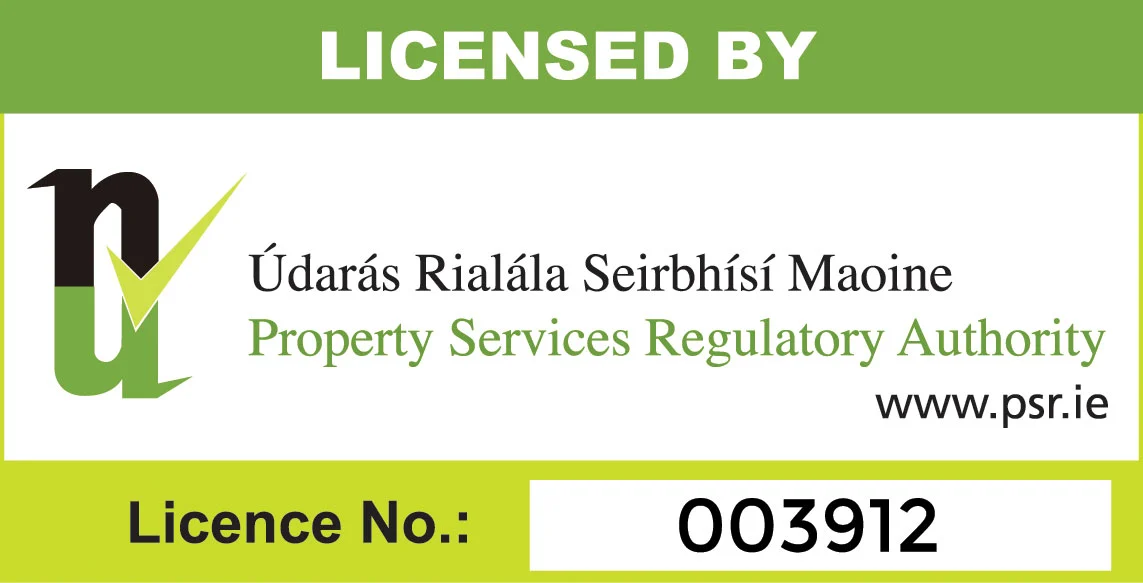Useful Websites When Buying a House
Buying a house or apartment is the most important financial transaction you will make in your life. If you’re a first time buyer, the process can be daunting and even for non first time buyers, there can be bumps along the road to buying a property. However, there are some online resources that we think will assist your property buying journey and we’ve documented them below with related videos.

1. How to Use Myplan.ie to Measure a Site or a Garden
Myplan.ie is a government website initiative and one of the tools that the website can be used for is to measure a particular site around a property; you can also check how much of the property has road frontage if that is something that you would like to know. It could also be used to measure the size/length of a back (or front) garden for example. It’s a handy tool to utilise as part of your property search.
2. How to Use Google Maps to Check the Aspect of a Property / Garden
People have different priorities when buying a property. One common enquiry that buyers have is the aspect of a property. A property buyer might want to know this because they want to ensure that the back garden will get good amounts of sunlight at specific times of the day. Another reason might be if they know the location of a certain room in the property, they might want to establish what aspect that room faces. Google Maps has features that allow people to find this out very quickly. This is something that you can check before setting up a viewing of a property but if you are at a viewing, you can always use the compass app on your smartphone (most are native to iPhone and Android). This will allow you to verify the aspect while at the property itself.
3. How to Use Landdirect.ie to Verify if a Property is Leasehold or Freehold
At times, there is a perception in Ireland that freehold is better than leasehold but in fact, a long lease is a perfectly good, marketable, bankable title. When buying a property, title issues/concerns will be dealt with by your appointed property solicitor in the conveyancing segment of the property sale (that’s the part of the sale after you go sale agreed to the point the property is sold). You can read more about leasehold and freehold properties in our guide here. As outlined in the video below, you can use the Land Direct website to check if a title is registered or not. Note that all apartments in Ireland are leasehold so this tool below is only worthwhile for a non-apartment property. Further reading on the topic of registered title and unregistered title is available in another one of our guides here.
4. Using Google Maps & Streetview to Verify Various Details About a Property
You may have a particular locality / area on your target list for buying a property and if you find a house or apartment to view, you can use Google Maps and Google Street View to verify a few details such as proximity to bus stop locations, Luas lines and more.
5. Using Myplan.ie to Check if Any New Developments are Due to Begin in an Area
If you’re hoping to purchase a property in a specific locality and have a property in mind, then a prudent thing to do is to check if there are any proposed new property developments in the area. Large scale new developments can impact you if, for example, you buy a house and six months later building work begins on 100 new houses and apartments just beyond your back garden fence. This might be something you’d like to know before bidding or buying a particular property in order to inform your final buying decision.

6. Using the Property Price Register to Research Comparables
If you’re in the market for a second hand property, knowing the sold price of recent properties in your target area(s) is useful information. It can allow you to gain an insight into a property’s guide price and then what subsequently was the actual sale price. Just to note that the Property Price Register doesn’t have a very good filtering capability in that you can’t break out properties in terms of number of bedrooms; you can search for a specific property address or a general area and filter it for county, year and by month.
7. How to Check a Property’s BER on the SEAI Website
BER stands for Building Energy Rating; the BER that a property achieves is an indicator of its energy performance. You can learn more about BERs in one of our posts here. When you are looking for properties, it should be part of your research to find out the BER. Some estate agents mention this in the property listing itself but if not, it’s something you can ask at a viewing. If the estate agent only provides you with the rating, ask for the BER reference number to verify and confirm.
8. How to Measure a Room / Create Floor Plans
If you have found a property and have gone sale agreed, you might want to request a walkthrough in order to have another look at the property or to take measurements. We recommend an app called Magicplan. This is an app that you can download to your smartphone or tablet and using your device’s camera, it can easily map out a room or a series of rooms. It’s free to use for one report so it won’t cost you anything but it will allow you to verify room measurements onto your plan. The video below details the uses of Magicplan and explains how it works; it mentions its uses for contractors but its basic functionality is great for property buyers.
9. How to Check About Schools in the Locality
If you are in the market for a property and have a family who are close to or who are at school-going age, you might want to know the schools available in your target locality. This can be done a few ways as shown in the video below. A more offline and informal method would be to visit a post office in the area you are interested in and simply ask an assistant about local schools. Most people will be friendly enough to help.
10. How to Check if Your Target Area is Prone to Flooding
Some areas in Ireland might be more prone to flooding than others and as a result, if you are hoping to move to an area that you’re not familiar with, then it’s prudent to check about flooding possibilities as part of your property-buying research. Post property purchase, it may be difficult to get flood cover included in your home insurance if you are based in a high risk area. There is a useful resource with information on the topic on this Office of Public Works website here and the video below explains how to use another website to check for flood information.

 Marketplace
Marketplace